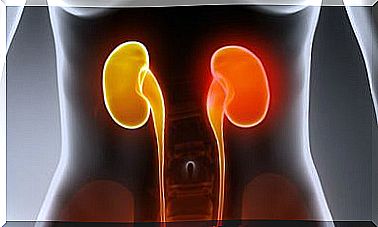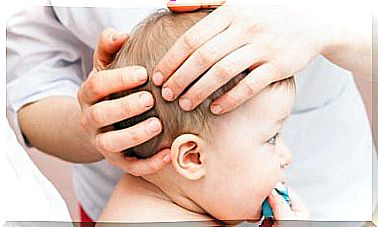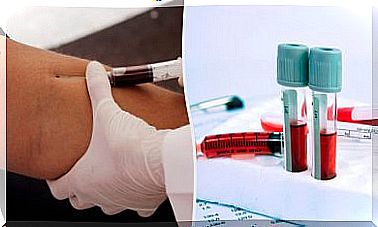Nephrotic Syndrome In Children: Causes And Treatment
The prevalence of nephrotic syndrome in children is 15 cases per 100,000 minors, according to data from the Spanish Association of Pediatrics. Now, what exactly is this disease? What are its causes and possible treatments? Next, we will tell you all about it.
What is nephrotic syndrome in children?
To understand what this syndrome is, we first have to understand how the kidneys work. These two bean-shaped organs are located just above the hip and are responsible for filtering the blood to subsequently remove waste from the body, including excess water and recover elements such as potassium, phosphorus and sodium and return them to the bloodstream.
Each kidney has about a million nephrons, small organs that have a filter called the glomerulus. The glomeruli are responsible for clarifying and filtering the blood plasma. When they do not perform their function properly, too much protein can pass to the kidneys.
One of the functions of proteins, specifically albumin, is to keep fluids within the bloodstream. Thus, if the proteins pass into the urine (a mixture of excess water and waste), the fluids “escape” from the blood, which can generate edema in the extremities, arms, hands and other parts of the body.
Symptoms of nephrotic syndrome in children

According to this information provided by KidsHealth , children with nephrotic syndrome have, beyond the high presence of protein in urine, a sudden increase in weight and swelling in the following areas:
- The abdomen.
- The face, especially in the eye area.
- The extremities , mainly with edema in the ankles and toes after periods sitting or standing.
While these are the main and most obvious symptoms of the disease, they are not the only ones. The following are also featured:
- Diarrhea.
- Infrequent urge to urinate.
- Dark, foamy urine.
- Fatigue.
- Abdominal pain.
- White skin around the nails.
- Lack of appetite.
3 causes of nephrotic syndrome in children

The nephrotic syndrome in children that prevails is the idiopathic and affects 90% of children between 2 and 12 years of age who suffer from this disease. The term idiopathic refers to the inability to determine conclusively the cause that produces the nephrotic syndrome.
In general, these children tend to have minimal change nephropathy, that is, there is a malfunction of the kidneys that is not observable through the microscope. Kidney tissue looks normal and, therefore, determining the cause of the problem is often impossible.
The second most common cause in children is childhood diabetes, as this study published in the Finlay Magazine points out , which can damage the kidneys, affecting the glomeruli and preventing them from correctly selecting wastes and useful components for the body.
The third place is occupied by genetic mutations. In the latter case, the nephrotic syndrome is called genetic, unless it occurs in children under 12 months, in which case we speak of congenital nephrotic syndrome.
Possible treatments

If you suspect that your child suffers from nephrotic syndrome, do not hesitate and consult your doctor. He will probably request a urine sample to test and check for excess protein.
Later, the professional will try to determine the causes that generate the disease to choose the best possible treatment. In this instance, it could also indicate the need for blood tests and even a kidney biopsy. It consists of taking a small sample of tissue to analyze it.
Usually, the pediatric nephrologist will indicate a pharmacological treatment based on corticosteroids, except in the congenital, family and syndromic manifestations. If there are side effects or resistance to corticosteroids, drugs such as cyclophosphamide, mycophenolate mofetil and, ultimately, anticalcineurinics may be indicated.
Also, your doctor may suggest diuretics to help fight swelling. For this same reason, a low sodium diet is often recommended for children with this disease.
Those children with genetic, syndromic, or familial nephrotic syndrome usually do not respond to treatment. However, there is research that suggests a good response to immunosuppressants in patients with mutations. The specialist will define the best treatment according to the specific characteristics of your child.
In short, nephrotic syndrome in children is the most common primary glomerulopathy. So, if you think your child may be suffering from it, consult your pediatrician. He will evaluate the need to consult with a pediatric nephrologist because, as we always remind you, no one can advise you better than a specialist.









